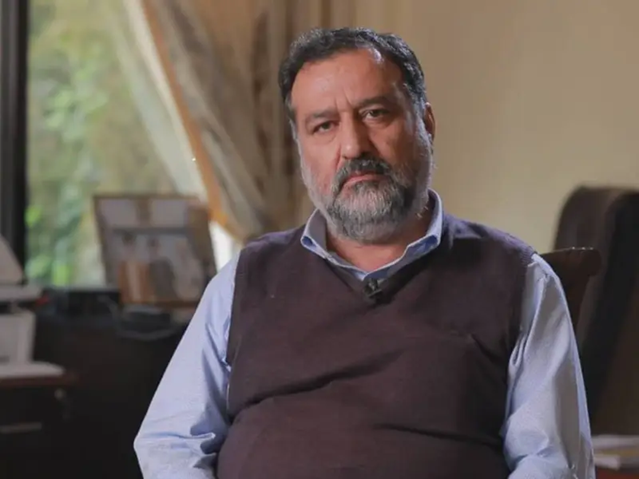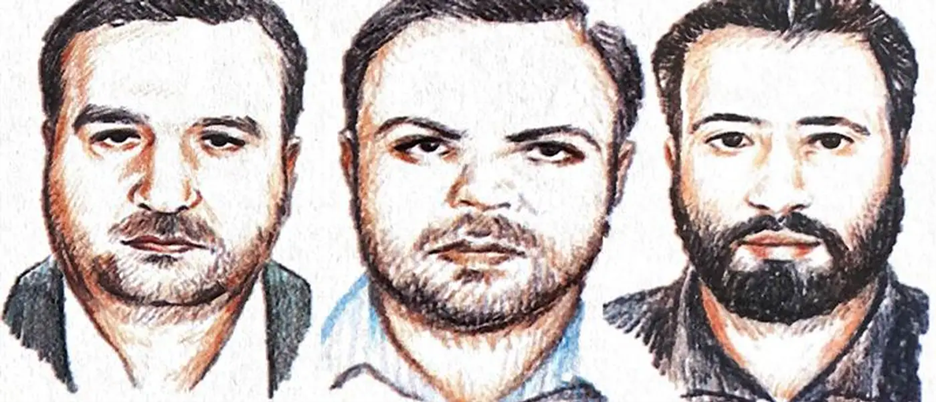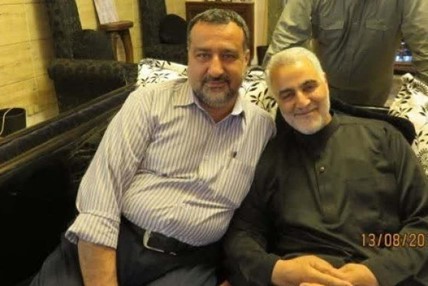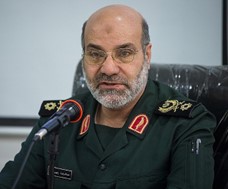Implications of the Death of the IRGC’s Quds Force’s Unit 2250 Commander Razi Mousavi
On December 25, the head of the Islamic Revolutionary Guard Corps’ (IRGC) Quds Force’s Unit 2250 in Syria Razi Mousavi was killed in a targeted airstrike near Damascus. Mousavi was an experienced commander, and the grandness of his funeral was a signal as to how important he was to the Iranian system. But the infrastructure that he constructed and operated will remain.

Who was Razi Mousavi?
Mousavi was born in 1964. During the Iran-Iraq War, he served in Zanjan for the IRGC. Accounts indicate Mousavi had been commuting to Lebanon and Syria since the 1980s. Iranian media portrayed Mousavi as part of the late Qasem Soleimani’s inner circle in Syria. Mousavi headed Unit 2250 in Syria, which is responsible for logistics, particularly overseeing weapons shipments and supporting Hezbollah. It also provides escort services to senior IRGC officials and their families in Syria. As head of Unit 2250, Mousavi presided over an enterprise, which included lieutenants Abdollah Ebadi and Meysam Katbi.
This is not the first time Israel has targeted Unit 2250, with an airstrike in September 2022 as one example. The Iranian press has also indicated Mousavi survived multiple assassination attempts. The U.S. government sanctioned Mousavi in 2010 using counterterrorism authorities under Executive Order 13224, calling him a “Syria-based Iranian official who is a key conduit for Iranian support to Hezbollah. He provides crucial support to Hezbollah, including financial and material support to the Lebanon-based terrorist group.”

Amwaj Media also reported Mousavi spearheaded coordination between Assad’s regime and the Quds Force, and was responsible for the supply of the Fateh surface-to-surface ballistic missiles to Hezbollah. His stature appeared to increase after the death of Soleimani in January 2020. As the Commander-in-Chief of the IRGC Hossein Salami said at his funeral, “he [Mousavi] remained steadfast after [the assassination of] Haj Qasem and accompanied [Commander of the IRGC’s Quds Force Esmail] Ghaani. The enemy knew him better than us because it had received severe blows from him. The enemy knew what role and influence he had on the endless chain of power.” This signaled Mousavi’s integral role in filling the void in Quds Force operations that Soleimani’s departure left. Soleimani was a major general, and outranked Ghaani, Mousavi, Mohammad Reza Zahedi (head of the Quds Force’s Levant operations), and others who were all brigadier generals. Given the singularity and longevity of his tenure, this resulted in a diffusion of power within the Quds Force among the existing cohort of brigadier generals, empowering them in their respective regional assignments, with Soleimani no longer on the scene.

A Cog in the IRGC Wheel
Unit 2250 is a subunit of Department 2000 of the IRGC’s Quds Force, which oversees operations in the Levant and is the crown jewel of the Quds Force’s regional departments. It is also known as the Lebanon Corps. IntelliTimes has extensively reported on this Quds Force structure. Unit 2000 is headed by Mohammad Reza Zahedi. Zahedi is a former commander of the IRGC’s Ground Force and Air Force, and previously served as deputy commander of the Quds Force. He was sanctioned by the United States in 2010, in the same tranche as Mousavi.

With Mousavi being taken off the field, Zahedi overseeing a transition to a replacement for Mousavi will be critical to maintaining the integrity of the Iranian logistics pipeline. Mousavi, whom some accounts place as Unit 2250’s Tehran office’s representative before transitioning to Syria, worked with Mojtaba Abdus, who is the current head of Unit 2250 in the Iranian capital, according to IntelliTimes. Mousavi also likely worked with Reza Safieddine, who is Soleimani’s son-in-law and the son of Hashem Safieddine, the head of Hezbollah’s Executive Council. Reza Safieddine manages weapons shipments from Iran to Syria and then to Lebanon using civilian airliners.
Mousavi’s Legacy and Next Targets
The scale of Mousavi’s funeral was reminiscent of Soleimani’s. Iran’s supreme leader played a role on both occasions. Senior IRGC commanders spoke and wept. Soleimani’s daughter Zeinab was among the speakers, with a nod to Mousavi’s close partnership with her husband Reza Safieddine. His likeness has already been adorned on government billboards across Iran, with one billboard placing Mousavi on equal footing with the martyrdoms of Hassan Eyrlou, the former Iranian ambassador to the Houthis in Yemen, Mohammad Hejazi, a senior IRGC commander who served in Lebanon and at one point as its deputy commander-in-chief, Soleimani, and Mohsen Fakhrizadeh, the father of Iran’s nuclear weapons program.
This treatment may seem unusual for someone like Mousavi who commanded a Quds Force unit in Syria. But it was a nod to the importance of Syria in maintaining the flow of arms in Iran’s Axis of Resistance as well as the logistics networks and expertise that Mousavi constructed over the years. While this Quds Force architecture is likely durable enough to absorb the blow of the loss of one of its senior commanders, that does not necessarily mean Mousavi’s death will not be felt. It will reinforce to the Iranians that IRGC officers themselves are in danger of being targeted amid continued attacks on Israel and U.S. forces. It may also instill paranoia in the ranks. There were unconfirmed reports from the Syrian opposition that Mousavi was killed alongside a young woman named Ra’d Dib, which raised suspicions he was engaged in a romantic affair. This, if true, is reminiscent of some reporting on the demise of Hezbollah’s Imad Mughniyeh, whose own interludes with a mistress and family issues made him more vulnerable for targeting by foreign intelligence organizations.
In the end, Mousavi is replaceable, particularly with figures like Ebadi and Katbi spending years in Unit 2250 and who remain on the scene. That’s not to mention Abdus as head of Unit 2250’s Tehran office, and there is precedent after Mousavi of transfers from Tehran to Damascus within 2250. U.S. and Israeli intelligence will continue to keep a watchful eye over figures like Zahedi, Saeed Izadi, who operates under Zahedi and leads the IRGC’s Quds Force’s Palestinian Office in Lebanon, and other figures in this orbit as Iran considers its response. There will likely be some form of retaliation, but it will be one in which Tehran carefully calibrates the escalation to avoid a reprisal attack on Iranian soil.
Jason M. Brodsky is the policy director of United Against Nuclear Iran (UANI) and a non-resident scholar at the Middle East Institute’s Iran Program. He is on Twitter @JasonMBrodsky.
Receive Iran News in Your Inbox.
Eye on Iran is a news summary from United Against Nuclear Iran (UANI), a section 501(c)(3) organization. Eye on Iran is available to subscribers on a daily basis or weekly basis.